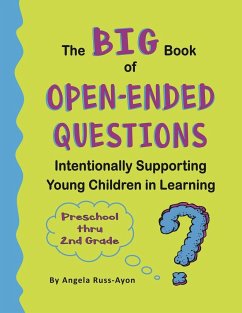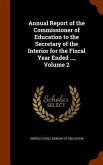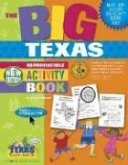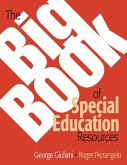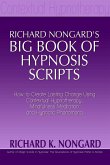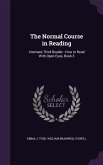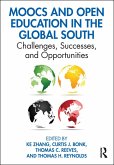The BIG Book is filled with lists, lists, and more lists of subject-specific open-ended questions to support quality parent-child or teacher-child interactions at home and in typical early childhood settings. Think of open-ended questions as exploratory prompts, learning opportunities, thought-provokers, and conversation starters. This type of inquiry requires a response with more than one-word answers, which typically close the door to any discussion. Learn how to transform "What color is this? - Blue" into a conversation that matters. Included are essential guidelines about developing and asking open-ended questions, skill-building tips, over 50 lined journal pages, and a multitude of prompts on over 70 topics, such as colors, numbers, geometric shapes, boxes, patterns, writing, force and motion, scale and structure, ramps, arts and crafts, bubbles, pretend play, and many more. Open-ended questions allow children to demonstrate their understanding of various topics using a higher level of communication and reasoning. They are guided to think on their own and solve their own problems. If children are asked the right question at the right time, they build upon what they already know by making connections and taking actions that lead to better outcomes. Research shows that helping children process information in their early stages is an effective way to maximize their physical, emotional, intellectual, and behavioral development in the long run. With practice, asking open-ended questions is a skill anyone can develop and use effectively every day. WARNING! This book does not contain answers to the questions. The answers are somewhere in the children's minds, and each one will be unique.Their interests will change the depth to which something can be explored. The depth to which they explore will depend upon the time allotted for the activity. Their goals and objectives will change based on the activities introduced and materials provided. Their strengths or weaknesses will change the order and direction of your guidance and assistance. Their communication skills will determine the questions you ask and how you ask them. Your questions will change and evolve based on what they know and how they think. For preschoolers to children in early primary grades! Benefits of Asking Open-Ended Questions:Encourages high-level thinking Inspires meaningful adult-child exchanges and interactions Furthers vocabulary and communication skills Empowers children to express themselves Provides emotional and instructional support Gives permission to experiment and explore further

